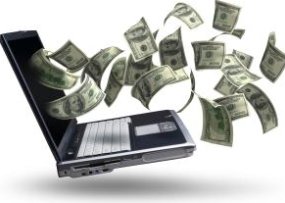
Internet banking, banking services in the virtual world is getting ogled. Practically, the reason the majority of its users. But how about security?
The bank would have to think carefully before removing the security system of e-banking services to customers. Now living part of the user, whether they also can maintain confidentiality?
Consider the 7 steps secure internet banking
1. Avoid Common PC
Never access your Internet banking account from a computer that is placed in general. In this case, can the cafe or the computers that many people can access it. Spyware is in general such a PC can lurk your transaction, and most apesnya events are malicious programs that can steal your data.
2. Routine supervision
Make a check against your bank accounts online regularly. This is to ensure that no suspicious transactions on your account the track record. If there is a strange transaction, immediately report this to the bank.
3. Strengthen Password
Use a password or PIN that is not easily guessed. Password that is difficult to penetrate the combination of letters and numbers. Do not ever think to use your birthday as a password, because it is predictable and the people who already know.
It would be better if you regularly change their password. A security firm to perform even recommend changing passwords every three months.
4. 'Do not Believe' Bank or Police
Do not ever spit password or other security code to anyone, including if the request is the bank or the police. The Bank may occasionally will ask for personal information, such as date of birth, middle name, or name your mother to verify. But the good banks will not or do not have the right to ask for a PIN or password bank account customers.
5. Antivirus Software
The computer you use to perform e-banking transactions should also be equipped with a qualified security system, in this case is the availability of antivirus and Internet security devices. Because the application of this guard will protect the user when surfing in a virtual world filled with traps malicious programs and hackers.
But the thing to remember is, update the virus definitions of your security software. For if not kept up to date will be useless.
6. Collect Receipt
This is trivial, but when after transacting online, there's good evidence that electronic transactions are collected in one file. This is for the verification process when there are suspicious transactions on your account.
7. Money Laundering
Avoid using personal accounts account for a variety of business transaction activities that involve other people's money in large quantities. Therefore, it can be regarded as money laundering activity (money laundering) and prohibited by law.

1 komentar:
mantap ni bs d coba t5hanks
Post a Comment